Updated: Authors & Editors That Can Touch Up Your Manuscript & Query Letter
Updated: April 2024
A while back, the iconic fantasy author Kat Howard worked on Mike Chen's novel Here & Now & Then. Her guidance helped get the book where it needed to be, and it’s since netted acclaimed reviews. His next books, A Beginning at the End and We Could Be Heroes are in stores everywhere, with more novels to follow.
A good eye, can get you on track.
But wait. Why have someone else looking over the manuscripts by the authors I've been signing?
Well, here's the thing, writerly types. I can still miss things that need work. Generally when I'm picking up an author, I'll have read through their manuscript pretty quickly (if I'm in love with a manuscript, I read it like I read any book... by devouring it), and when it comes time for edits, I'll read it again, slowly, making notes. Then usually another time. And then again.
By the time we're ready for sub, I've likely read the book four, maybe five times. At that point, I'm probably missing stuff. If I didn't catch it by the fourth or fifth read through, I'm not going to. And if that book isn't quite landing with editors I'm subbing it to, another set of eyes becomes so key. This goes for my work process as an agent and as a writer, as well as any author working on a query letter or a rough manuscript. A new set of eyes will catch things you might have missed, and pick up on issues that are closer to them.
TL; DR: More eyes, means a better letter or a better book.
I thought it might be a good idea to roundup other authors and editors that offer up freelance editorial work. Because who better to help you work on that query / manuscript, then someone who has been there before? Authors and editors know what solid queries and manuscripts should look like, having read and written so many.
So... here we go!
Kat Howard (@KatWithSword): Kat's an author with Saga and a published short story writer with over 30 shorts out there in the world. And she has a Ph.D in literature, you guys. Check her site out for more info regarding what she edits and her rates. [Website]
Katherine Locke (@Bibliogato): The author of The Girl with the Red Balloon duology (please read these books!), Katherine knows their genre well, and works on Young Adult, Romance, and middle grade books. They offers up help on query letters, full reads, and line edits of manuscripts. [Website]
Shelly Romero (@_smromero): I chatted with Shelly plenty during her time at Scholastic and in other places through the publishing industry, and let me tell you, she’s one of the most brilliant people in this business. AND she’s available for critiques? Details on her website, but wow! [Website]
Sophia Jimenez: Sophia has worked on some astonishing books at S&S, including some of my very favorites from Laura Taylor Namey. She’s available for editorial assessments and sensitivity reads. [Website]
Hannah Morgan Teachout: With experience at agencies and a bundle of services available, you can scope out what Hannah’s all about on her site, here. [Website]
Victoria Rose (@WordsFlickering): During the first year of the Philadelphia Bookstore Crawl, Victoria came on board to write a bunch of blog posts and copy, and basically saved the day. She offers up proofreading and copyediting, amongst other services. Highly recommend. [Website]
Meghan McCullough: An editor I’ve been lucky enough to interact with plenty in my agent life, Meghan offers all kinds of critique and editorial options. Just visit her website. [Website]
Samantha Paige Rosen (@samanthaprosen): A local writer and editor I admire quite a bit, Samantha’s services are available via her website, here. She even book coaches! [Website]
Olivia Valcarce (@OliviaValcarce): A freelance editor for MG and YA, who has worked in the industry for quite some time. And I love quite a few of the books she worked on at Inkyard (see those here). Details on how to hire here, via her website.
Diana M. Pho (@writersyndrome): A former editor at Tor and a three time Hugo award nominee, Diana is amazing. You’ve absolutely read books she’s worked on, and she’s one of the most brilliant people in publishing I know. Details can be found here [Website].
Emily Ohanjanians (@storyphile): I was lucky enough to work with Emily a bit during her time at MIRA, and now she’s freelance editing. You can learn more about her services on her official website, and she’s also hirable via Reedsy. [Website]
Julie Scheina: Julie’s worked with folks like Tara Altebrando and Kami Garcia, working in publishing and as a freelance editor. You can get a sense of what services she offers via her website. [Website]
Koren (K.M.) Enright (@KM_Enright): A former literary agent, Koren also worked in various spaces throughout publishing, and also writes books! You can check out their rates on their website, here. [Website]
Kerry Kletter (@kkletter): Kerry wrote one of my favorite YA novels of all time, and her adult books have been astonishing. And you can hire her for critiques and edits! Details here [Website]
Revise and Shine: Run by a number of experienced folks including Lesa Cline-Ransome, Jennifer Richard Jacobson, Jo Knowles, and Rob Costello, they offer a bundle of editorial services. Check out their website.
Laura Silverman (@LJSilverman1): A YA rom-com titan, Laura’s works are fantastic, and she offers up editorial services. Details here [Website]
Lori Anne Goldstein (@loriagoldstein): An author of several books I adore, Lori’s available for coaching, edits, and even runs a retreat. More info on her website.
Natalia Sylvester (@nataliasylv): I’ve been a big fan of Natalia’s novels ever since her debut, and watching her take over the kid-lit world has been amazing. Guess what! She offers up critiques and editorial services! Details here on her website. [Website]
Sarah LaPolla (@sarahlapolla): A former agent who I’ve been at dozens of events with, Sarah’s gone freelance editor! I’ve adored the romance and YA novels she’s worked on, and you can learn more about how to hire her via Reedsy [Website].
Diana Gill (@dianagill): I’ve read a bunch of the books Diana has worked on, and goodness, do you want an opportunity to work with her. A former editor at Tor, HarperVoyager, Random House, and more, you can find her details here [Website]
Lauren Smulski (@LaurenES): So Lauren was the editor of Don’t Read the Comments, my first book over with Harlequin / Inkyard Press, and she’s worked with a whole bundle of authors you adore. She’s worked on New York Times bestsellers, even! And you can hire her, what! Details are here on her website. [Website]. You can also hire her via Reedsy.
Amy Spalding (@theames): If you’ve ever listened to an episode of Hey YA or talked to me about books, you know how much I adore Amy Spalding’s brilliant YA contemporary novels. You can hire her for book coaching and more. Details on her website. [Website]
Kendall Davis (@kenashcreative): Kendall has written for all your favorite geek outlets and writes books of her own, with plenty of experience working at major publishing houses. You can check out her services here [Website]
Julie Eshbaugh (@JulieEshbaugh ): Author of the Ivory & Bone series and other wonderful YA novels, Julie is available for writing coaching, critiques, and more. [Website]
Sonia Belasco (@SoniaBelasco): Philly author and writing coach Sonia Belasco writes really lovely in-verse YA and more, and is available to help with critiques, query workshopping, and more. Details here! [Website]
Lilly Dancyger (@lillydancyger): An author with Seal Press and an essayist for sites like Catapult, Lilly offers up a bundle of editorial services. [Website]
Michelle Meade (@MichelleEllise): So Michelle is the editor who acquired Mike Chen’s acclaimed Here & Now & Then, and thus, has a special place in my bookish heart forever. [Website]
Rebecca Enzor (@RebeccaEnzor): An author I was lucky enough to work with early in my agent career, Rebecca is great at helping out with queries and synopsises. [Website]
Bev Katz Rosenbaum (@bevrosenbaum): A former editor at places like Harlequin and McGraw Hill, as well as an author of Young Adult novels, Bev comes with experience from both sides of the business! Details on how you can hire her for critiques and workshops, here on her website. [Website]
Laura Lee Anderson (@LLAWrites): Laura, like me, is an author with Bloomsbury's digital imprint Bloomsbury Spark. Her novel, Song of Summer... well, you're going to have a lot of feelings after reading it. Have tissues ready. She looks at query letters and full manuscripts. [Website]
Alison Weiss (@alioop7): In my agent life, Alison worked on two of my favorite projects, and is such a wild champion of kid-lit. You can hire her freelance via her website, and goodness, if you need a recommendation, I will scream about her to anyone who will listen. [Website]
Sangeeta Mehta (@sangeeta_editor) A former acquiring editor of children’s books at Little, Brown and Simon & Schuster, Sangeeta is now a full-time freelance book editor specializing in middle grade, young adult, and commercial women’s fiction. She also writes articles featuring literary agents she admires, including this Q&A about how agents approach diversity. Visit her website for more information.
Nicole Frail (@nfrail17): Nicole's an editor over at Sky Horse Press (and also worked on three books by authors I’ve worked with), and she's also written a few non-fiction titles of her own. You can check out her rates here. [Website]
E.C. Myers (@ecmyers): The author of Fair Coin, Quantum Coin, The Silence of Six, and so many more books, Eugene is an awesome YA author that I'm a big fan of. And guess what? He offers up some freelance editing services! Manuscript critiques and the like. Drop him a note regarding availability. [Website]
Jon McGoran (@jonmcgoran): An author with Tor, Jon's DRIFT series is a favorite of mine. Drift, Dead Out... all killer thrillers, that you should be reading. And his YA series Spliced is brilliant. He's taught a number of writing courses and novel editing classes, and is available for select projects. Drop him a line, especially if you're working on thrillers or mysteries. [Website]
Ashley Kuehl (@ashley__kuehl): Ashley here does proposal critiques, edits, and manuscript consultations! You can see all the details on her website here. [Website]
Angela James (@angelajames): A founder of publishing presses and an editorial extraordinaire, you can hire Angela to polish up that manuscript. Details regarding rates and more can be found here. [Website]
Sarah Hannah Gómez (@shgmclicious): A prolific author, podcaster, and just all around excellent human, Sarah’s available for edits, critiques, you name it. Details here on her website [Website].
Samantha Wekstein (@SWekstein): A literary agent who also offers up freelance editing services. [Website]
Lexi Small (@lexi_smail ): A former editor at major publishing houses in NYC, Lexi is available for freelance services. [Website]
Jay Whistler (@JayWhistler): I met Jay at VCFA! You can work with her or anyone else on her editorial team via Angel Editors. Details here. [Website]
Sarah Jane Singer (@TheNewSarahJane): A freelance editor who has worked with New York Times bestselling authors and more, details here on their website [Website].
Ilana Masad (@ilanaslightly): I was lucky enough to work with Ilana early in my agency career, and I am such a massive fan of her work. And hey, she critiques and edits. She's won scores of awards for her short stories, her debut novel is AMAZING, and you definitely want to work with her. Drop her a line regarding her rates via her website. [Website]
Lara Willard (@larathelark): Working on comics? Graphic novels? Picture books? Lara's the gal for you, specializing in work with a visual angle, though she does other stuff too. You can learn more about her via her site. [Website]
Jocelyn Bailey (@thebookhooker): A former editor at Thomas Nelson and a freelance editor for places like Pegasus, Jocelyn's a rockstar. You can see what she offers up on her website. [Website]
Megan Manzano (@megan_manzano): Has worked with some PitchWars folks, and these days, is a literary agent at D4EO. Check out her website for her rates and details [Website].
Kaitlyn Johnson (@RedPenKaitlyn): Freelance editor and literary agent at Belcastro, I’ve done a ton of events with Kaitlyn, and she’s just great. Check her website for details and rates in her freelance editorial life. [Website].
Mary Dunbar (@MaryCDunbar): YA author and editor! Details on her rates can be found on her site. [Website]
Liana Brooks (@LianaBrooks): An author with HarperVoyager and loves science fiction, fantasy, urban fantasy, paranormal, romance, and crime fiction for any age group. If it goes boom, bang, kiss, or crash, she can help. Check out her rates on her website.
Celeste Paed (@CelesteReads): A writer who has served as EIC behind two literary magazines, Celeste offers freelance editing, copyediting, and other services with query letters and manuscripts. First her websites and contact her for rates and information. [Website]
Adalyn Grace (@AdalynGrace_): A Young Adult author who is now open to critiques and editing services! Check out her offerings, here on her website. [Website]
Holly Ingraham (@holly_ingraham): A former editor at St. Martin's Press and a former literary agency assistant, Holly has experience across the industry! Check out her rates here. [Website]
Julia A. Weber (@JAWeberEdits): A former literary agent gone freelance editor? Yes! Julia works across categories and genres, check out what she offers on her personal site. [Website]
Dev Petty (@devpetty): Looking to get notes on your picture book? You can hire this published picture book author (I Don’t Want to be a Frog is a favorite of my toddler), to give that manuscript a look. Details on her rates and availability on her website. [Website]
Raquel Henry (@RacquelHenry): Raquel has been published in way too many literary journals to name here (just check out her website), and does freelance editorial work. You can learn more about what she offers here [Website].
Ekta R. Garg (@EktaRGarg): An author and editor who offers up edits and critiques. You can see her rates and what she works on via her official website. [Website]
Swati Hedge (@SwatiHWrites): A published with with Bell (check out Match Me if You Can), Swati offers up editorial and coaching services [Website].
Melissa Ann Singer (@maseditor): A former editor at Tor, Nightfire, etc. who worked on a number of books I love (and you likely love too!). Check out their Reedsy profile here. Novella or full novel length projects only, please!
Jennifer Prokop (@jenreadsromance): Yes the voice behind your favorite romance novel podcast does freelance edits. I cannot imagine how awesome it would be having a pro like Jennifer working on your romance novel. Details on their website.
Kristen Weber (@kristenwEditor): A former editor at Hachette (Grand Central, Mysterious Press, etc) Kristen is available for query letter packages, manuscript critiques, etc. [Website]
Jennifer Banash (@jenniferbanash): An author who offers up editorial services, ghostwriting, and more. [Website]
Have someone you'd like to add to the list? Are YOU that someone? Email me! ericsmithrocks at gmail dot com!





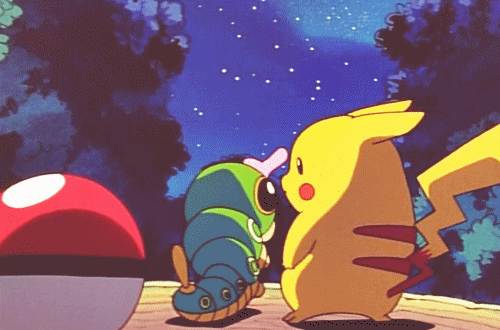




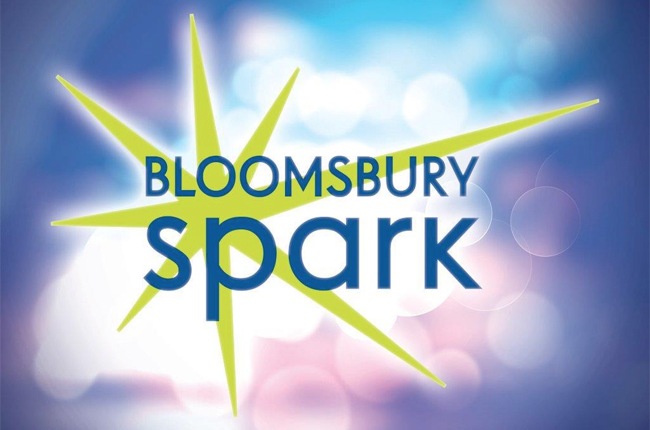 When my super agent Dawn Frederick called me last week, late in the afternoon, the day before
When my super agent Dawn Frederick called me last week, late in the afternoon, the day before 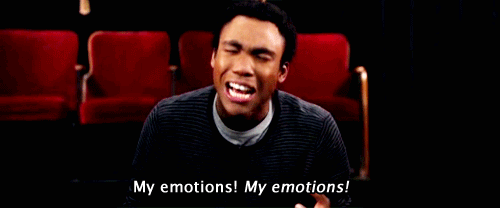

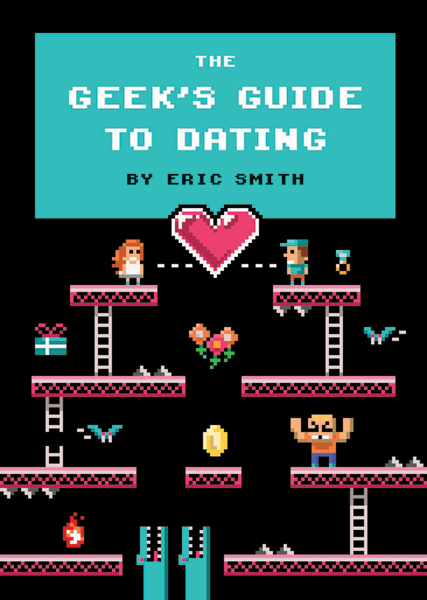
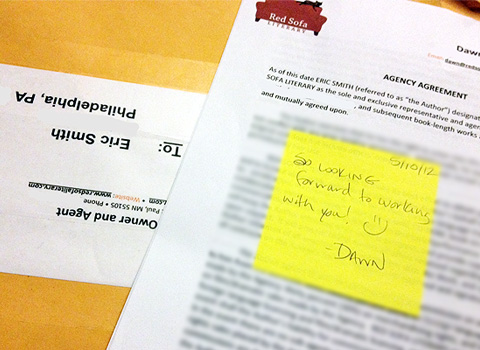 Oh! So that's what a contract from a literary agent looks like. Though it looks a lot less blurred in person.
Oh! So that's what a contract from a literary agent looks like. Though it looks a lot less blurred in person.